Protein is essential to maintaining a healthy lifestyle. It helps build muscles and keeps our bodies strong. Find out more about good sources of protein here!
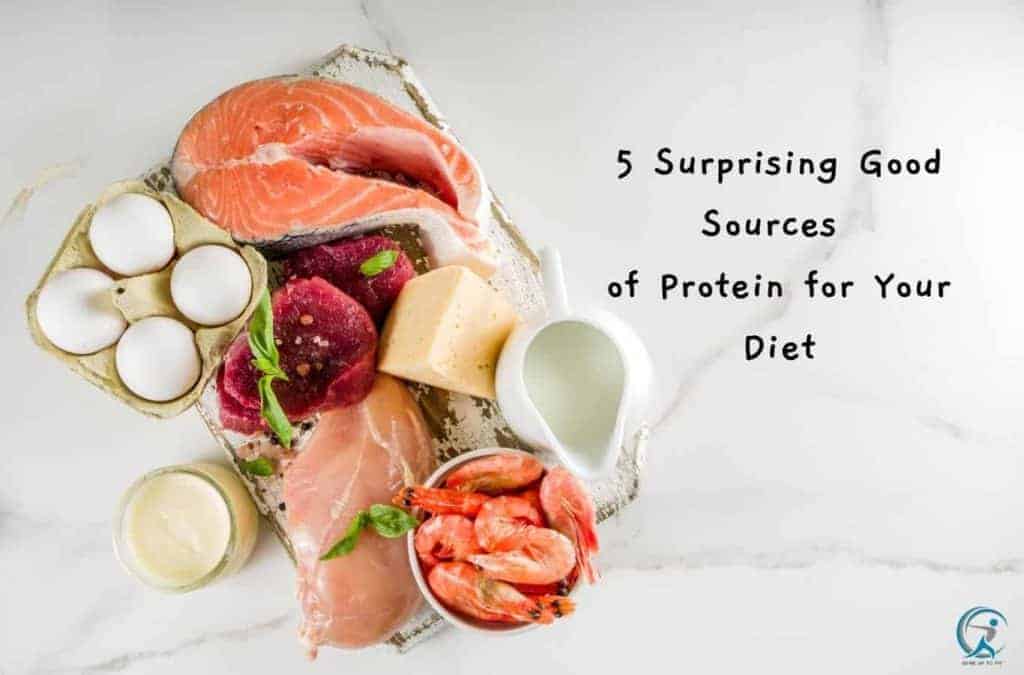
It’s good to know what good sources of protein are. As a society, we’re becoming more aware of good nutrition. And while some people may think of protein as mainly coming from meat sources, there are a lot of good plant-based sources of protein.
Protein is good for you, so make sure to add it to your diet
Protein is necessary for the body’s growth and maintenance. It is essential for building and repairing tissues such as muscles, internal organs, and skin. It is also used to produce enzymes and hormones. With this in mind, a good protein powder can help supplement the daily dietary intake of protein.
Protein is an essential component of every cell in the body. Hair and nails are mostly made of protein. Your body uses protein to build and repair tissues. You also use protein to make enzymes, hormones, and other body chemicals. Protein is an essential building block of bones, muscles, cartilage, skin, and blood.
Along with fat and carbohydrates, protein is a “macronutrient,” meaning that the body needs relatively large amounts. Vitamins and minerals are required in only small quantities, are called “micronutrients.” But unlike fat and carbohydrates, the body does not store protein and therefore has no reservoir to draw on when it needs a new supply.
Health Benefits of Protein
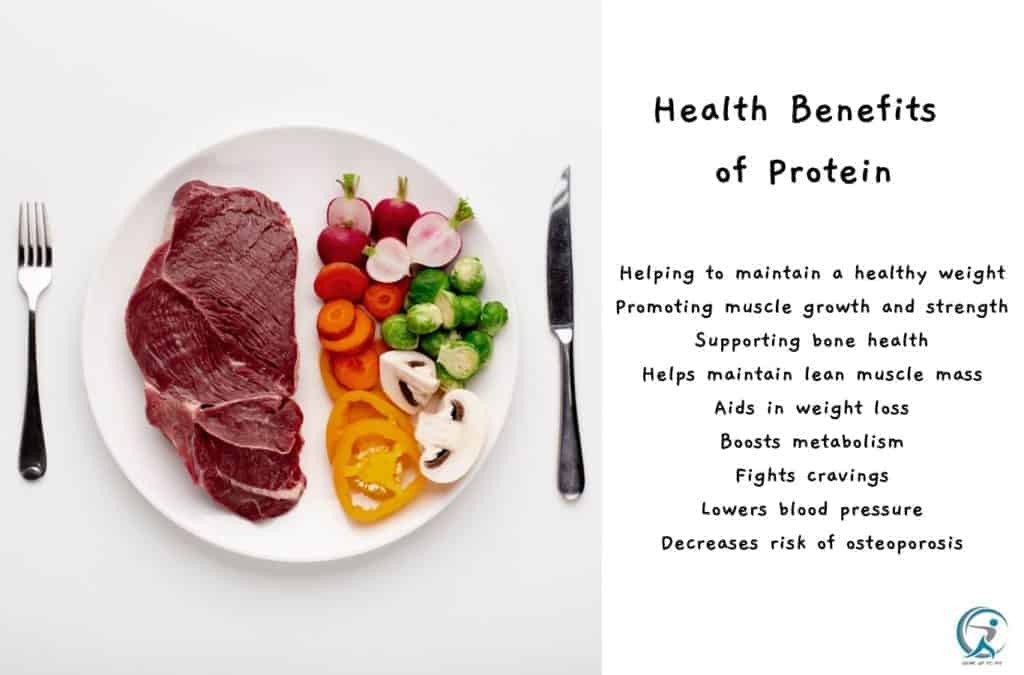
Protein is an essential macronutrient used to build and repair body tissue. It also provides the energy necessary to keep us going, even when resting. Protein can be found in meat, poultry, seafood, beans, eggs, nuts, seeds, and dairy.
Protein has been linked with a variety of health benefits, including:
- Helping to maintain a healthy weight
- Promoting muscle growth and strength
- Supporting bone health
- Enhancing mood and cognitive function
- Reducing the risk of heart disease
- Helping to build strong immunity
- Helps maintain lean muscle mass
- Aids in weight loss
- Boosts metabolism
- Fights cravings
- Lowers blood pressure
- Decreases risk of osteoporosis
Side effects of Protein Deficiency
Protein deficiency may cause hair loss or muscle weakness, leading to fatigue or irritability, among other things like depression or impaired mental function. Decreased food cravings could cause this with increased appetite due to a lack of energy from not having enough protein in one’s diet.
The effects on one’s health are much more serious if they do not consume enough protein daily. This is why protein powders are good supplements to have to ensure that you are getting enough of this essential nutrient.
Different Types of Protein Sources
There are many different kinds of protein powders available. Some are derived from plant sources like soy beans or rice, while others are derived from animal sources such as whey or casein. Whey protein is a popular choice because it has a high biological value (BV) which means that it contains all the essential amino acids required by the body. Casein is another popular choice because it has been shown to decrease appetite compared to other proteins.
When choosing a protein powder, it is essential to consider your own dietary needs and preferences. If you are vegan or vegetarian, you may want to choose a plant-based protein powder. If you are dairy intolerant, then you may want to choose a whey-free protein powder. And if you are looking for a protein source that will help you feel fuller longer, you may want to choose a casein protein powder.
When choosing a protein powder, it is essential to consider your individual needs and preferences. If you are vegan or lactose intolerant, you may want to choose a plant-based protein powder. If you are looking for an excellent post-workout protein source, you may want to choose whey or casein-based protein powder. Ultimately, the best choice is the one you will be most likely to stick with.
5 Surprising Good Sources of Protein Food for Your Diet
Beef is a good protein source.
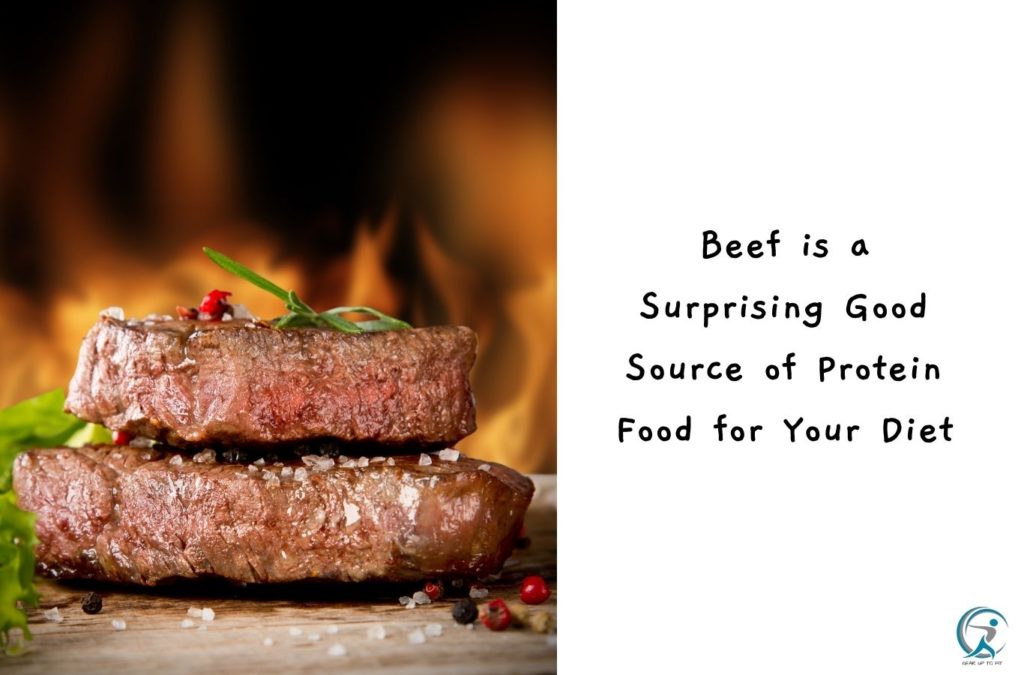
It is high in nutrients, such as zinc and vitamin B12, essential for good health. Beef is also a good source of iron, which helps transport oxygen throughout the body.
Complete proteins, such as meat, contain all the amino acids your body needs.
Lean beef provides about four times as much saturated fat as a skinless chicken breast or a portion of cod. As part of a healthy diet, however, the saturated fat in beef can be consumed in moderate quantities. The total amount of saturated fat eaten is essential, and not any single food.
Poultry, such as chicken and turkey, is another good source of protein.
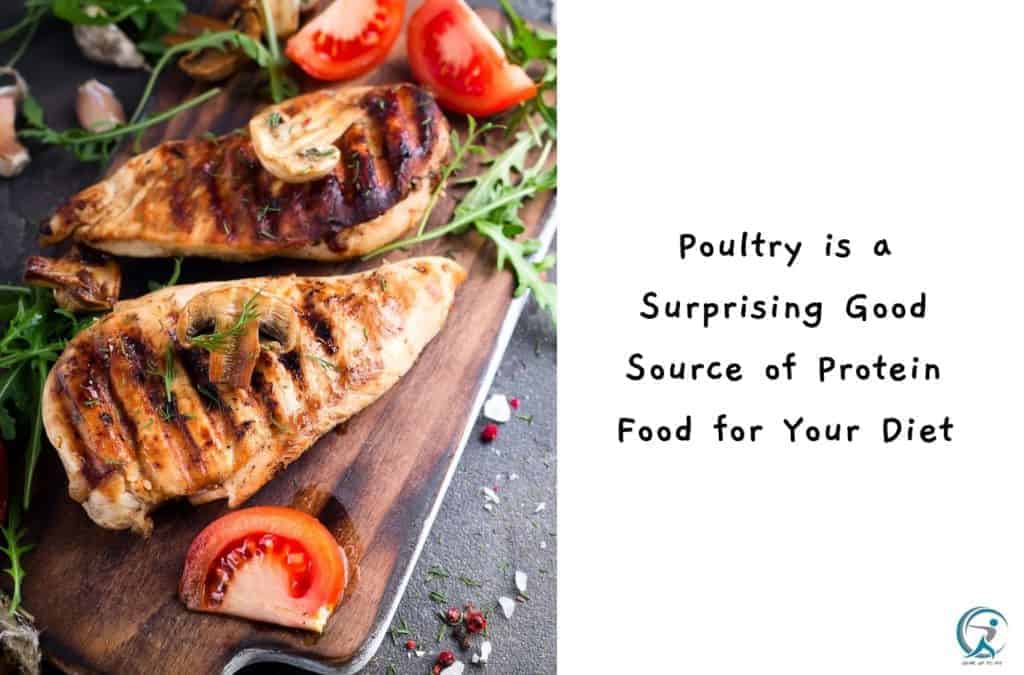
Turkey is high in selenium, an antioxidant mineral that supports the immune system. Chicken is a good source of niacin, vitamin B6, and phosphorus.
When consuming meat, aim to choose grass-fed meats and avoid processed meats, such as bacon.
Eggs are a great source of healthy protein. However, it’s best not to consume more than two eggs per day.
The healthiest fish to consume include salmon, mackerel, and herring, as these fish provide the most omega 3 fatty acids.
Fish is also a great source of protein. For example, cooked salmon contains about 25–30 grams of protein per 3-ounce (85-gram) serving.
Fish is a good source of protein and omega-3 fatty acids.
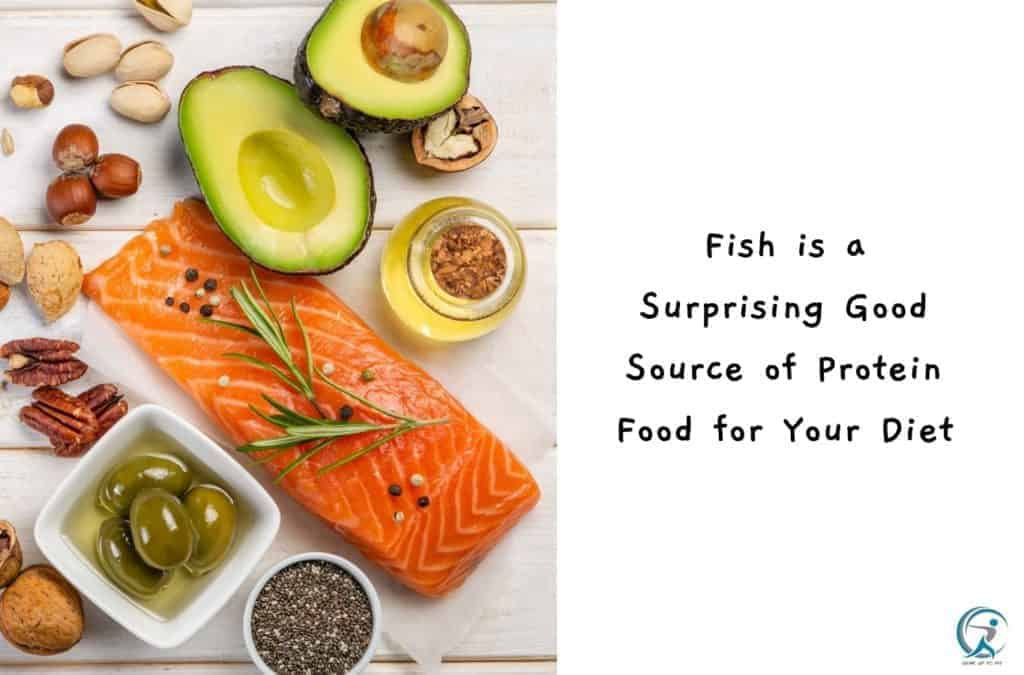
Omega-3 fatty acids play an essential role in human health and have been linked with various health benefits, including reducing the risk of heart disease.
The American Heart Association recommends eating at least two 3.5-ounce servings of fish per week to help protect your heart, but that’s not the only benefit you receive when you choose this type of protein.
Here are the top reasons why you should be adding more fish to your diet:
Protein is an essential nutrient needed to build muscles, repair tissue, and make enzymes and hormones.
Vitamin D is a vitamin needed to build strong bones and teeth by maintaining normal calcium and phosphorus blood levels. Vitamin D may also protect against osteoporosis, hypertension (high blood pressure), cancer, and several autoimmune diseases.
Selenium is an antioxidant that protects cells from damage that can lead to cancer, thyroid problems, heart disease, muscular degeneration (destruction), and premature aging.
Eggs are a good source of protein, choline, and vitamin B12.
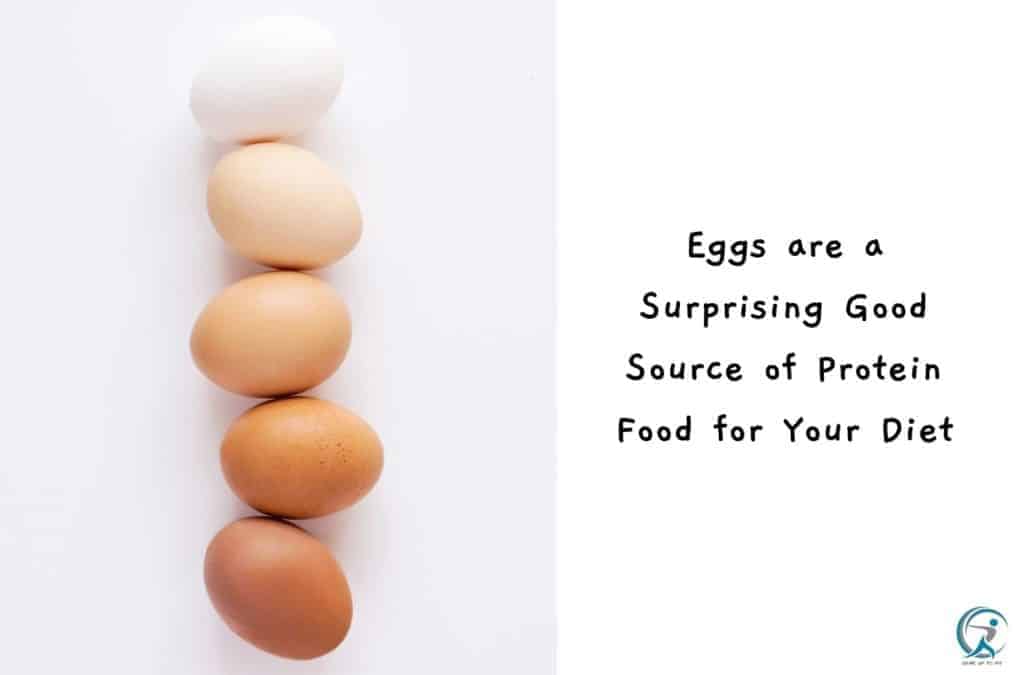
Eggs are a great source of protein, healthy fat, choline, and vitamin B12. One large egg contains about 6 grams of protein — about half the recommended daily intake for women and 40% for men. The egg yolk also contains most of the vitamins and minerals in an egg and all of the fat.
Egg yolks also contain choline, an essential nutrient that helps your brain function properly and regulates metabolism. And they’re one of the few foods that naturally contain vitamin D.
Eggs are one of the few foods that naturally contain vitamin D.
1 large egg contains:
- Calories: 72
- Total fat: 5 g
- Protein: 6 g
- Vitamin A: 244 mcg (RAE)
- Lutein and zeaxanthin: 93 mcg
- Folate: 24 mcg
- Vitamin B12: 0.6 mcg
Dairy products, such as milk, yogurt, and cheese, are good protein sources.
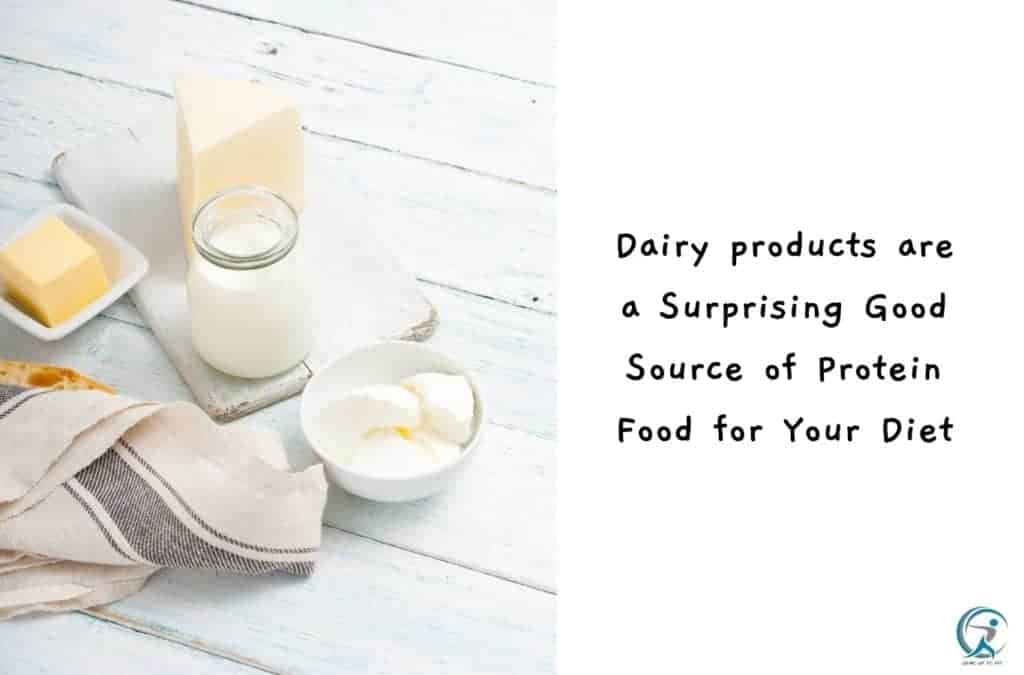
They are also high in calcium, which is necessary for strong bones. Yogurt (Greek yogurt) and cottage cheese are good sources of probiotics, beneficial bacteria that support gut health. Cheese is a good source of vitamin B12 and zinc.
Choose reduced-fat or fat-free options whenever possible. For instance, a plain whole milk yogurt cup has 149 calories and 8 grams of fat (5 of them saturated). The same amount of 2% plain low-fat yogurt has 122 calories and 3 grams of fat (2 saturated). And fat-free plain yogurt has 98 calories and no fat at all.
While it is essential to include good sources of protein in your diet, it is also important not to overdo it. Excessive protein intake can be harmful to your health and may increase the risk of developing kidney problems or cancer. It is best to speak with a doctor or nutritionist before making any significant changes to your diet.
High Protein Sources
Protein is an essential part of the human diet, helping to build and repair muscle tissue. If you’re looking to increase your protein intake, here are some high-protein foods that you can incorporate into your meals:
1. Eggs
Eggs are a fantastic source of protein. They contain about 6 grams of protein per egg and provide many vitamins and minerals including vitamin A, vitamin D, calcium and iron. Each egg also has only 70 calories, making them an excellent choice for those trying to lose weight or watching their calorie intake. To make eggs more filling, add vegetables and cheese to your omelets or scrambled eggs instead of just eating them plain. You can also use whole eggs in baked goods such as muffins or brownies, though you’ll want to avoid recipes that call for lots of eggs so as not to risk getting too many calories from cholesterol.
2. Lean Meat
Lean meats like chicken breast or turkey breast are great sources of protein because they contain just enough fat to add flavor without adding too many calories (turkey breast contains about 10 grams per serving). These meats also contain iron, which is important for building red blood cells and transporting oxygen throughout the body. Try roasting chicken breasts instead of frying them so they’ll be less likely to dry out. You can also cook them in a slow cooker with some vegetables and seasonings for a healthy, protein-packed meal that’s easy to prepare.
3. Fish
Fish is another excellent source of protein and provides many health benefits including omega-3 fatty acids, which are beneficial for heart health. Salmon, tuna, herring and trout are all good choices when it comes to fish. You can grill, bake or roast fish, or even eat it raw in sushi. Just be sure to avoid fried fish, which can add unnecessary calories and fat.
4. Beans and Legumes
Beans and legumes like lentils, black beans, and chickpeas are all high in protein and fiber. They’re also low in calories and fat, making them a great choice for those trying to lose weight. Beans and legumes can be used in a variety of dishes, such as soups, stews, salads, and chili. You can also add them to rice or quinoa dishes for an extra boost of protein.
5. Nuts and Seeds
Nuts and seeds are small but mighty when it comes to protein. Just a handful of almonds (about 23 nuts) contains 6 grams of protein, while a quarter cup of pumpkin seeds has 8 grams. Nuts and seeds are also good sources of healthy fats, vitamins, and minerals. You can eat them on their own as a snack, or add them to yogurt, oatmeal or baked goods. Just be sure to watch your portion sizes, as nuts and seeds are high in calories.
Here are some high-protein foods:
- Chicken breast (4 ounces) — 27 grams of protein
- Fish fillet (4 ounces) — 22 grams of protein
- Tuna fillet (4 ounces) — 19 grams of protein
- Shrimp (4 ounces) — 18 grams of protein
- Turkey breast (4 ounces) — 16 grams of protein
- Egg (1 large) — 13 grams of protein
- Cheddar cheese (1 ounce) — 7 grams of protein
- Peanut butter (2 tablespoons) — 8 grams of protein
- Almonds (23 nuts) — 6 grams of protein
- Pumpkin seeds (1/4 cup) — 8 grams of protein
- Chickpeas (1/2 cup) — 7 grams of protein
- Lentils (1/2 cup) — 9 grams of protein
- Black beans (1/2 cup) — 8 grams of protein
Healthy protein sources
There are many different types of protein powders available, but some of the best sources of protein come from plants or animals.
Beef is a good source of protein and is high in nutrients such as zinc and vitamin B12.
Poultry, such as chicken and turkey, are also good protein sources.
Fish is a good source of protein and omega-3 fatty acids, and eggs are a good source of protein, choline, and vitamin B12.
Dairy products, such as milk, yogurt, and cheese, are also good sources of protein.
While it is essential to include good sources of protein in your diet, it is also important not to overdo it. Excessive protein intake can be harmful to your health. It is best to speak with a doctor or nutritionist before making any significant changes to your diet.
Plant Protein Sources
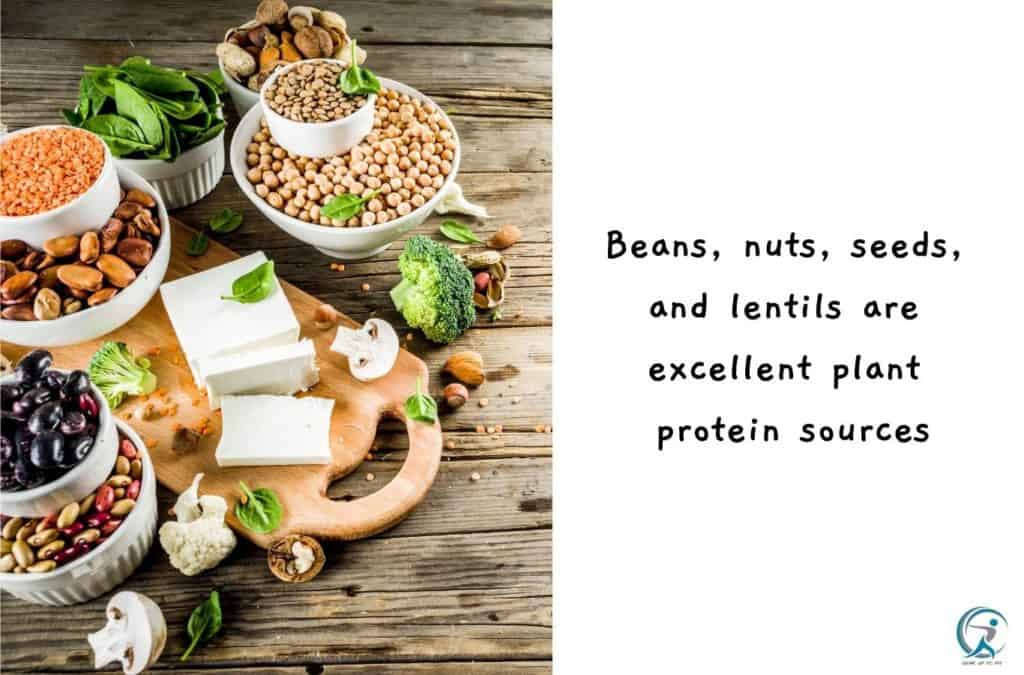
Plant protein sources are abundant and can be added to many food items. Beans, nuts, seeds, and lentils are excellent plant protein sources. These plant proteins have lower the risk of developing chronic diseases like heart disease and type 2 diabetes. These foods can also help with weight management and improve overall wellness.
Beans: Beans are a great source of plant protein that can be used in various ways. They contain the same protein per serving as lean meat and poultry but without the cholesterol or saturated fat associated with animal products.
One cup of cooked black beans contains about 15 grams of protein. They’re also high in fiber, magnesium, and potassium.
Daily Protein Needs – Recommended dosage of Protein
It is important not to overdo the amount of protein you take in each day because too much will lead to weight gain rather than weight loss. A good rule of thumb is to consume about one gram of protein.
The average person needs 0.8 grams of protein per kilogram of body weight each day. That means the average adult male needs to eat about 64 grams of protein each day, while the average adult female should consume 46 grams. Protein is essential for building muscle, helping us feel full, and keeping us energized throughout the day.
So, make sure to add some good protein sources to your diet! They will help you to feel fuller longer and stay healthy.
FAQ about Good Sources of Protein
While beef is a good source of protein, it is not as high in protein as some other foods. A 3-ounce serving of beef contains about 21 grams of protein.
Protein is one of the essential nutrients that the human body needs to function properly. It is a good source of energy and helps build and maintain muscle mass.
The healthiest dairy product with high protein content is yogurt. Yogurt is a good source of probiotics, which are beneficial bacteria that support gut health, and it is also high in protein. A 6-ounce serving of yogurt contains about 18 grams of protein.
Yes, protein does contain fiber. Some good sources of fiber-rich protein include fruits, vegetables, and legumes.
As a veteran fitness technology innovator and the founder of GearUpToFit.com, Alex Papaioannou stands at the intersection of health science and artificial intelligence. With over a decade of specialized experience in digital wellness solutions, he’s transforming how people approach their fitness journey through data-driven methodologies.